If you are a new mom then you must be worried about What foods to avoid while Breastfeeding? You must be thinking about what I should eat and shouldn’t eat. And many other questions such as:
- What are gassy foods to avoid while breastfeeding?
- What Foods Cause Gas When Breastfeeding
- What foods can upset a breastfed baby?
In this post, I will talk about What foods should not be eaten when breastfeeding?
BABY MAY REACT TO FOODS YOU EAT
baby enjoys the taste of milk. It is possible that your baby might be sensitive to something you eat such as eggs and dairy products like cheese and milk. If your newborn baby shows these signs that mean your baby has an allergy or sensitivity to something you eat:
- Diarrhea, vomiting, green stools with mucus or blood,
- Rash, eczema, dermatitis, hives, dry skin,
- Fussing during and/or after feedings,
- Crying for long periods,
- Sudden waking with discomfort, or
- Wheezing or coughing.
These signs mean your baby has a problem with something you eat. That also means you must stop eating whatever is upsetting your baby. You may find that after a few months you can eat the food again with better results. Read more
Note: there is no food to avoid, you can eat balanced food for good breastfeeding but there are some drinks and Foods to Limit While Breastfeeding.
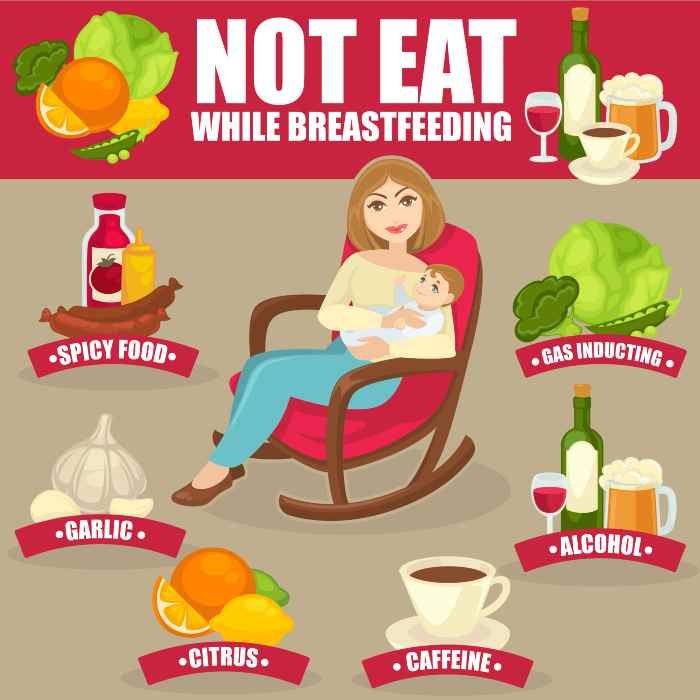
What foods to avoid while Breastfeeding?
Like when you were pregnant, there are things you should limit or avoid while you are breastfeeding to keep your baby happy and healthy.
1. Consequences of eating Caffeine

Breast milk can pass caffeine from mother to baby. It will not affect the baby until you consume caffeine in a low amount (about 300 milligrams or less per day, which is about 2 to 3 cups of coffee) so do not worry.
caffeine consumption of more than 300 mg is unlikely to harm a baby. However, the CDC notes that extreme caffeine consumption of more than 10 cups a day may cause symptoms in the baby, such as fussiness and jitteriness.
You must decrease the amount of caffeine if you see your baby appears to be more fussy or irritable.
Coffee, soda, tea, and chocolate are common sources of caffeine. When you consume them, some of that caffeine can end up in your breast milk (1 Trusted Source,2 Trusted Source)
This would be a problem for newborn, as newborn babies find hard to digest caffeine. As a consequence, babies start feeling annoyed and trouble to sleep. (1 Trusted Source, 2 Trusted Source)
Read more“caffeine and breastfeeding” for more information on caffeine consumption and breastfeeding.
2. Consequences of eating Seafood
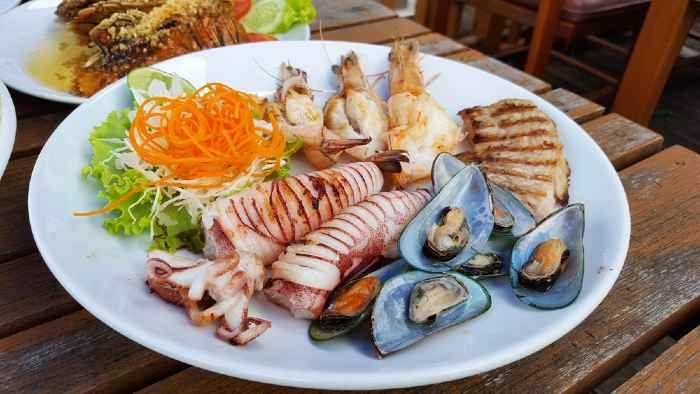
Many kinds of seafood can be high in mercury, which can harm newborn babies who are more sensitive to mercury poisoning (1 Trusted Source, 2 Trusted Source). This can have adverse effects on the brain and nervous system of the breastfed infant.
High consumption of mercury seafood can forever harm your baby’s central nervous systems. As a consequence, newborn babies may have issues with cognition, fine motor skills, speech and language development, visual-spatial awareness. (6 Trusted Source, 8 Trusted Source):
Therefore, fish that are high in mercury should be avoided while breastfeeding.
Avoid eating the following high-mercury fish species:
- Swordfish
- Shark
- King mackerel
- Marlin
- Orange roughy
- Bigeye tuna
- Tilefish from the Gulf of Mexico
This chart can help you choose which fish to eat, and how often to eat them, based on their mercury levels.
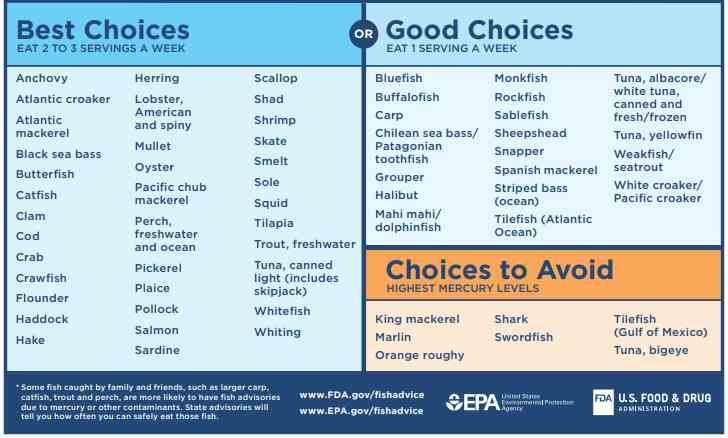
Breastfeeding women (as well as pregnant women, women of childbearing age, and parents and caregivers of young children) should follow the US Food and Drug Administration’s (FDA) advice about eating fish:
3. Consequences of eating herbal supplements
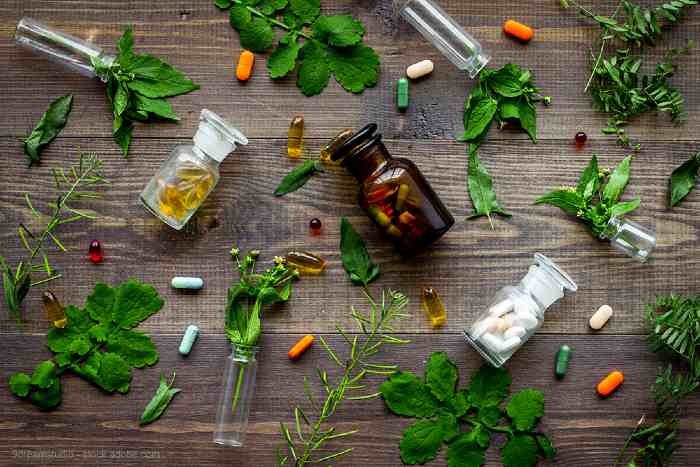
It is commonly recommended that breastfeeding mothers avoid herbal medicines.
This is due to a lack of knowledge about whether or not different herbal medicines migrate into breast milk and scientific safety data.
In addition, infection of herbal products with traditional drugs, pesticides, or heavy metals must be avoided. (1Trusted Source, 2 Trusted Source).
Pyrrolizidine alkaloid herbs (PAs) can be hepatotoxic to any baby who is exposed to it with breast milk and thus can be possibly harmful to them. read more
4. Consequences of eating Parsley or Peppermint, and Sage

These three herbs are known as anti-galactagogues, which means if you take these herbs in high dose will decrease breast milk. Read more
5. Consequences of eating highly processed foods
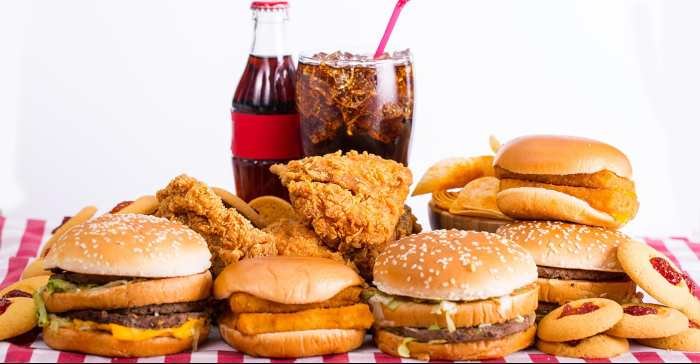
It is highly advisable for a breastfeeding mom to eat a healthy balanced diet. (Trusted Source)
High in calories, unhealthy fats, and added sugars, yet low in fiber, vitamins, and minerals are high processes foods. Doctors always suggest you to limiting food consumption.
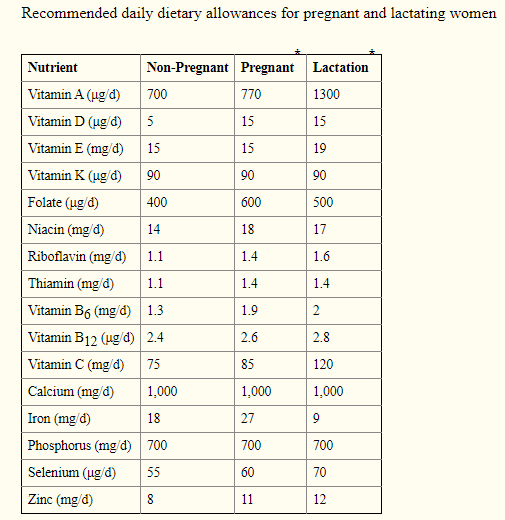
Since highly processed foods are usually low in vital nutrients and may influence the child’s food habits later in life, it is advised that breastfeeding mothers reduce their consumption of foods that are high in added sugars and processed fats.
6. Don’t drink Alcohol

I will not suggest you drink alcohol while breastfeeding but you can occasionally drink.
When you occasionally drink you must remember these tips.
It’s best to stop drinking when you’re breastfeeding. Alcohol can get in your breast milk, and it can cause you to produce less milk.
If you want to drink, you will have a single alcoholic drink once in a while if your baby’s breastfeeding routine is well established—and your baby is at least 3 months old.
Then make sure to wait at least 4 hours until the nursing session. Before you drink, you should even pump milk to feed your baby later. It’s best to talk to the doctor before you drink alcohol.
Dink in moderation that means if you drink a lot of alcohol the more you have to wait for breastfeeding.
7. Avoid smoking, drugs, and other medications.

Limit or avoid smoking, most drugs, and alcohol for the baby’s health and yours.
Many moms are wondering how smoke, tobacco, and alcohol impact breastfeeding. When you are breastfeeding, you should stop or continue to reduce smoking, certain medications, and alcohol. This will ensure the best wellbeing for you and your baby.
Smoking
If you smoke, it is best for you and your baby if you quit as soon as possible. Smoking can cause low milk supply, colic, and milk let-down issues.
Electronic cigarettes, also known as “e-cigarettes,” “e-cigs,” “vapes,” or “vape pens,” may also harm your baby’s health. These devices deliver nicotine, flavorings, and other additives through an inhaled aerosol. There is limited research about the safety and health effects of e-cigarettes.
Ask your doctor for advice on quitting smoking.
Drugs
It is important to stay free of drugs when breastfeeding. Anything that makes you high will hurt your baby, and it can happen to your baby through your breast milk. Avoid using marijuana, crack, cocaine, heroin, ecstasy, meth, and other street drugs.
Drug use may also have an effect on the family in several ways. It can be related to poor parenting, neglect of the baby, and abuse. Parents with drug use disorders may not be able to take proper care of their children. Read more
Other Foods To Avoid When Breastfeeding
You can hear a rumor that strongly flavored things such as garlic or spicy dishes may be avoided when you are breastfeeding, but there are no tough and fast guidelines on the tastes you can enjoy.
After all, the way you eat your food depends greatly on your cultural cuisine. Somewhere in the country, a breastfeeding mom enjoys a garlic or a curry dish, and her baby is just perfect.
1. Garlic

when it comes to garlic and breastfeeding, how baby reacts can depend on how accustomed they are to the taste.
“If you are somebody who eats a lot of garlic, you may enjoy it during your pregnancy,” says Syms-Brown.
In fact, one study showed that babies not introduced to garlic have the long-term treatment and seem to find the new taste extra-delicately tasty.
2. Spicy Foods
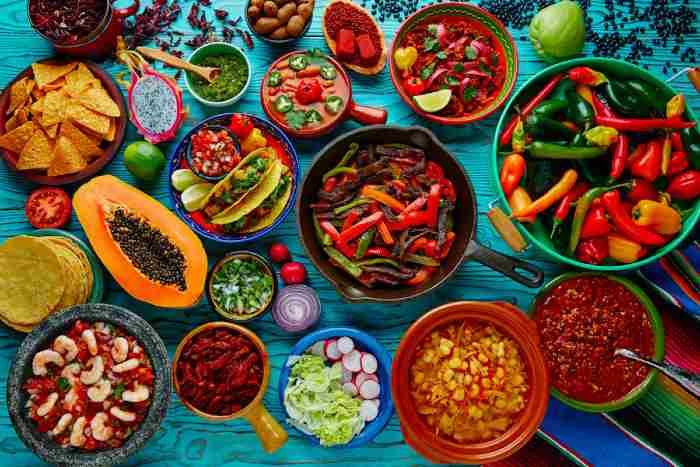
Hawkins said that spicy food and breastfeeding would go hand in hand with no hitch. Yet ethnic and personal practices come into play here.
baby is ready for those flavors when you ate spicy foods throughout your pregnancy.” Some babies don’t care for hot food.
Don’t just get a spicy lunch out of the ordinary. If you eat spicy foods, and babies do not react to them in such an enjoyable way, then maybe spicy foods might cause this.” read more
What Foods Cause Gas When Breastfeeding
Your doctor would certainly have recommended that you keep away from certain foods, such as beans, cauliflower, and cabbage. which are likely to cause gas during your pregnancy.
So logically many moms are curious which foods to stop when a gassy baby is breastfeeding. But the fact is that foods can make babies gassy only if they have specific sensitivities to them.
There are some food can upset a breastfed baby? :
- Dairy
- Soy
- Gluten
- Eggs
- Peanuts and tree nuts
- Citrus
- Fish
However, while these foods may be the issue, mothers do not view them as foods they should eliminate when breastfeeding — at least not directly from the start.
“The best way [when a child has sensitivity] to find out is to expose them to various foods.” So how do you know if your child is really sensitive to food?
Syms-Brown says that children normally develop classic symptoms within 12 to 24 hours of feeding, including:
- Gas
- Crying and colic
- Diarrhea
- Bloody or mucousy stool
- Rash
- Eczema
- Excessive spit up or vomiting
- Congestion, runny nose, wheezing or coughing
- Trouble sleeping
“If a baby has these symptoms, it is highly likely that family has allergies history,” Shipley says.
“Cow’s milk is the most common allergens for babies and is more likely to cause babies with formula given in their early childhood because it sensitizes their immature digestive system through early exposure to cow’s milk-based.
Conclusion
Breastfeeding mothers should not stress enough what they should not eat while breastfeeding – but it is important to be mindful of the food that can affect a baby’s health and milk production when consumed in large numbers. Here’s a Foods to Limit While Breastfeeding, and why.
- Fish high in mercury
- Some herbal supplements
- Alcohol
- Caffeine
- Highly processed foods
- Smoking and drugs
what foods to avoid while breastfeeding a newborn Watch youtube videos
- What to Eat and Avoid While Breastfeeding | Nutrition, Eating and Exercising: Breastfeeding Tips
- 10 Foods to Avoid While Breastfeeding
- Are there foods I shouldn’t eat while I’m breastfeeding?
Related articles
- 7 Tips For The First Week Of Breastfeeding For New Moms
- 15 Proven Benefits Of Breastfeeding For Mom & Baby?
- 5 Best Proven Breastfeeding Tips For New Moms: Positions
- 15 Signs Your Baby Is Getting Enough Breast Milk
- How To Do Hand Expression Of Breast Milk: Best Techniques
- 30 Breastfeeding Tips For Newborns: New Mom Must Know 2021
- 10 Best Nursing Pillows: For New Born Baby 2021
Breastfeeding and Alcohol, Drugs, and Smoking | WIC Breastfeeding. (n.d.). Wicbreastfeeding.fns.usda.gov. Retrieved February 12, 2021, from https://wicbreastfeeding.fns.usda.gov/breastfeeding-and-alcohol-drugs-and-smoking
Jeong, G., Park, S. W., Lee, Y. K., Ko, S. Y., & Shin, S. M. (2017). Maternal food restrictions during breastfeeding. Korean Journal of Pediatrics, 60(3), 70. https://doi.org/10.3345/kjp.2017.60.3.70
Karcz, K., Lehman, I., & Królak-Olejnik, B. (2020). Foods to Avoid While Breastfeeding? Experiences and Opinions of Polish Mothers and Healthcare Providers. Nutrients, 12(6), 1644. https://doi.org/10.3390/nu12061644
Nutrition While Breastfeeding | WIC Breastfeeding. (n.d.). Wicbreastfeeding.fns.usda.gov. https://wicbreastfeeding.fns.usda.gov/nutrition-while-breastfeeding
